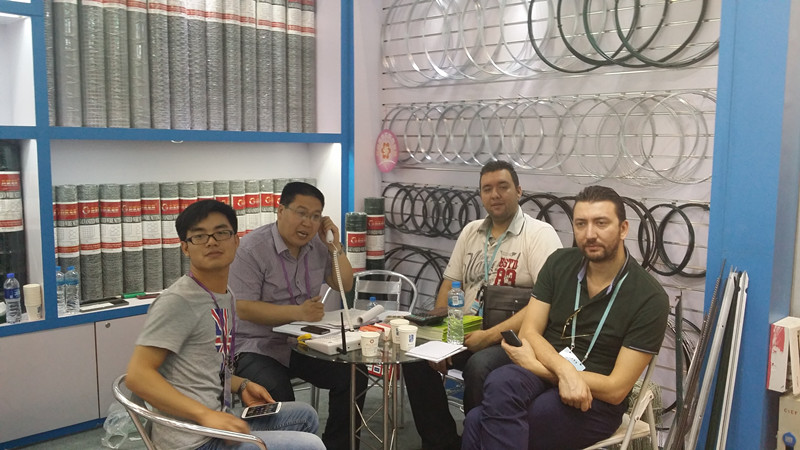Understanding CE Certification for Common Nails in Construction and Manufacturing Industries
CE Certification for Common Nails An Overview
CE certification serves as a vital marker of compliance with European health, safety, and environmental protection standards. For manufacturers and distributors of construction materials, including common nails, obtaining CE certification is essential to ensure that their products meet stringent guidelines and can be marketed throughout Europe. This article delves into the importance, process, and implications of CE certification specifically related to common nails.
What is CE Certification?
CE marking indicates that a product conforms to applicable European directives and regulations. It is crucial for products marketed in the European Economic Area (EEA) because it reassures consumers and businesses that the item in question adheres to high safety and quality standards. The CE mark is more than just a label; it signifies the product's compliance with all relevant European legislation.
Importance of CE Certification for Common Nails
Common nails are fundamental components used in various construction and manufacturing applications. Therefore, ensuring their quality and safety is paramount. Furthermore, CE certification helps manufacturers gain a competitive edge in the market, as it signals reliability and compliance to potential buyers.
1. Quality Assurance CE certification ensures that common nails are produced according to specified standards, guaranteeing their strength, durability, and resistance to corrosion, which are essential for structural integrity. 2. Market Access With CE certification, manufacturers can freely market their products throughout the EEA, eliminating barriers and fostering easier trade partnerships and opportunities.
3. Consumer Trust The CE mark acts as a badge of quality for consumers, building trust in the product's reliability. Builders and contractors often prefer certified products to mitigate risks associated with inferior materials, emphasizing the significance of CE certification in their purchasing decisions.
The CE Certification Process for Common Nails
Obtaining CE certification involves several steps, starting from product development to market introduction. Here’s a brief overview of the process
ce certification common nails

1. Determine Applicable Standards Common nails fall under specific European directives, such as the Construction Products Regulation (CPR). Manufacturers must identify the relevant harmonized standards that apply to their products.
2. Product Testing Manufacturers must conduct testing to demonstrate their nails meet the required performance characteristics. Testing often includes assessments of mechanical properties and durability.
3. Technical Documentation Creating a comprehensive technical file is crucial. This documentation should include details about the product specifications, testing results, and compliance declarations.
4. Declaration of Performance (DoP) A DoP must be drafted, detailing the performance characteristics of the common nails in accordance with the identified standards.
5. CE Marking Once all requirements are met, manufacturers can affix the CE mark to their products, allowing them to be sold within the EEA.
Implications of Non-Compliance
Failure to obtain CE certification can result in severe consequences for manufacturers. Non-compliant products may be barred from the market, leading to financial losses and reputational damage. Furthermore, consumers may trust non-compliant products less, adversely affecting market demand.
Conclusion
CE certification for common nails is not merely a regulatory formality but a crucial process for ensuring quality, safety, and market competitiveness. By adhering to established European standards, manufacturers can secure their product’s place in the market, foster consumer trust, and contribute to overall construction safety. In an increasingly quality-conscious market, CE certification stands as a testament to a product’s integrity and reliability.
-
Wire Mesh Solutions for Modern Industrial Needs
NewsJul.17,2025
-
Steel Wire Powers Modern Industrial Applications
NewsJul.17,2025
-
Iron Nails Big Iron Nail Price Guide Bulk Buyers
NewsJul.17,2025
-
Durable T Post Solutions for Industrial Fencing Projects
NewsJul.17,2025
-
Durable Hexagonal Wire Netting For Modern Applications
NewsJul.17,2025
-
Building Material Wholesale Solutions for Modern Construction Needs
NewsJul.17,2025














